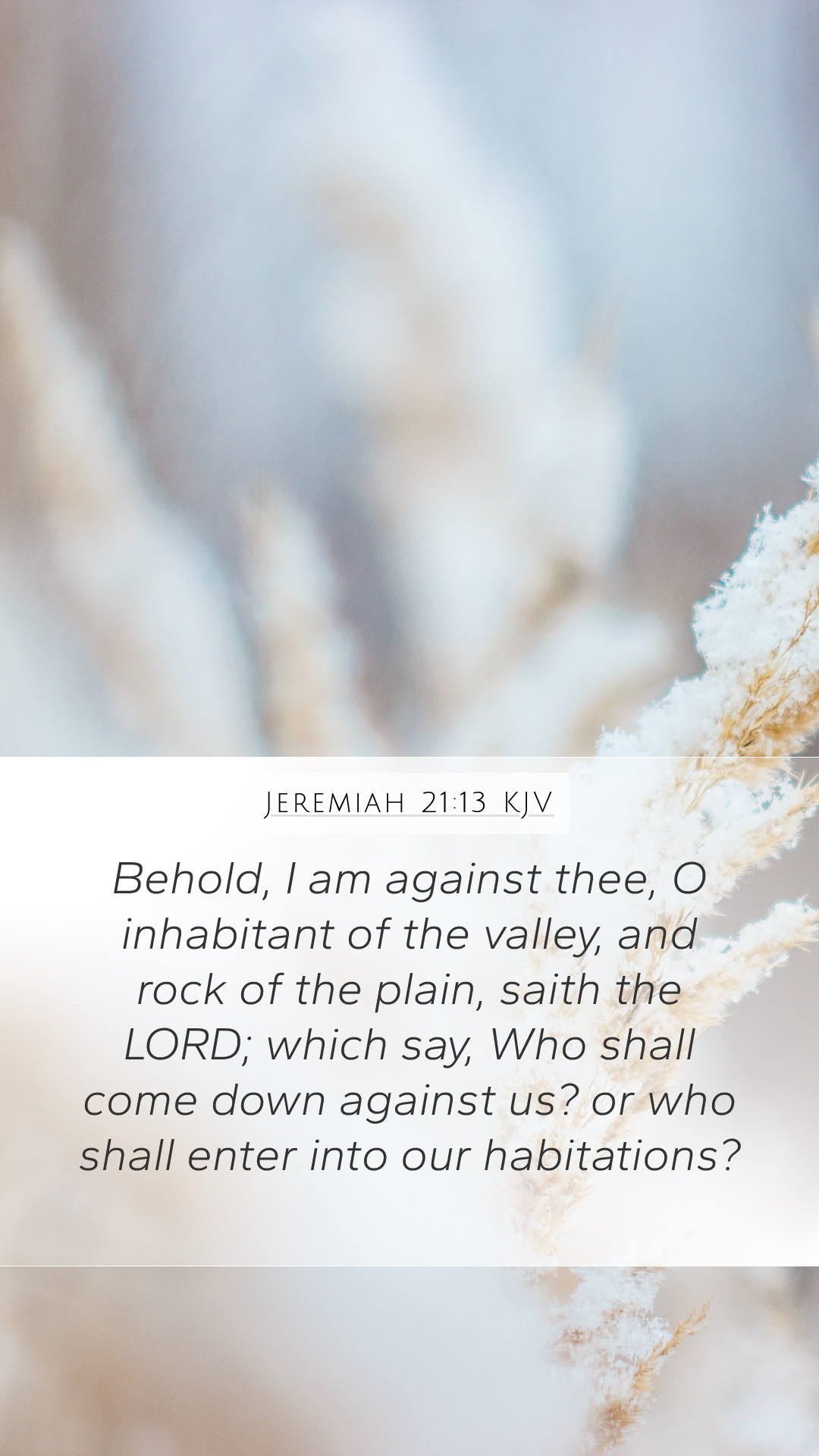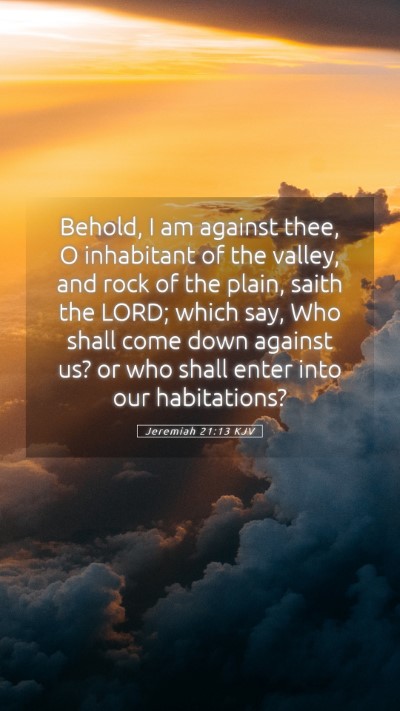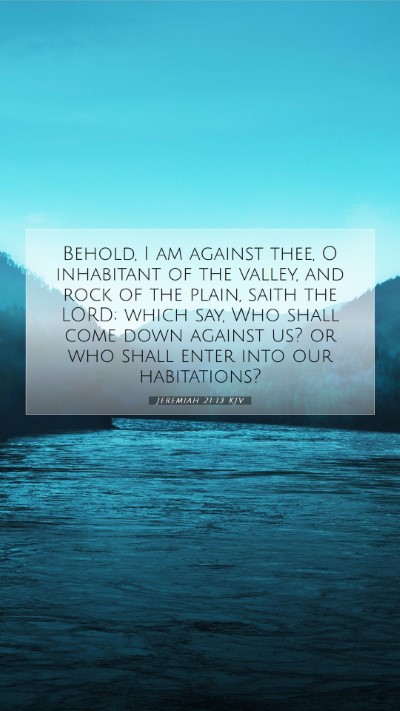Understanding Jeremiah 21:13
Verse: "Behold, I am against thee, O inhabitant of the valley, and rock of the plain, saith the Lord; which say, Who shall come down against us? or who shall enter into our habitations?" (Jeremiah 21:13, KJV)
Overview
This verse from the Book of Jeremiah speaks directly to the inhabitants of Jerusalem during a time of impending judgment and siege by the Babylonians. The Lord, through the prophet Jeremiah, declares His opposition to the city’s arrogance and reliance on its natural defenses.
Bible Verse Meanings and Interpretations
Jeremiah 21:13 emphasizes God's power and authority over the nations. The inhabitants of Jerusalem believed that their geographical position, situated in a valley and surrounded by rocky terrain, rendered them invulnerable to attack. This mindset is critiqued by God, as recorded in the verse.
Insights from Commentaries
Matthew Henry's Commentary
Matthew Henry explains that God’s declaration of being "against" Jerusalem highlights the seriousness of their situation. He notes that this threat comes during a time when the people are falsely secure, relying on their surroundings rather than their faith in God. Henry points out that the "valley" and "rock of the plain" symbolize the people's pride and false sense of security, knowing that those who boast in their defense will face dire consequences if they do not turn back to God.
Albert Barnes' Notes
Albert Barnes elaborates on the phrase "who shall come down against us?" noting that it reflects the skepticism of the people toward any threat. They dismiss the warnings, believing that their position makes them safe. Barnes highlights that God, in His omnipotence, can easily penetrate any stronghold, emphasizing that human defenses are futile against divine judgment.
Adam Clarke's Commentary
Adam Clarke provides a detailed analysis of the location being referred to in the verse. He contrasts the inhabitants’ confidence in their physical safety with the reality of God’s judgment. Clarke also addresses the psychological aspect of their denial—seeing themselves as safe, even as doom approaches. He insists that God’s judgment must be taken seriously and serves as a warning against complacency.
Application of the Verse
Understanding Jeremiah 21:13 can be vital for our daily lives. It teaches that reliance on worldly security and pride is ultimately misplaced. The verse urges believers to seek God rather than be swayed by visible circumstances. Through this passage, we learn about the nature of divine justice and the importance of humility before God.
Cross References
- Isaiah 31:1: "Woe to those who go down to Egypt for help..." - cautions against relying on earthly allies.
- Psalm 20:7: "Some trust in chariots, and some in horses; but we will remember the name of the Lord our God." - emphasizes the point of trusting God over military might.
- Jeremiah 5:12: "They have belied the Lord, and said, It is not he; neither shall evil come upon us..." - shows a similar attitude of disbelief in God's warnings.
Conclusion
Jeremiah 21:13 serves as a potent reminder of the sovereignty of God and the futility of human pride. It challenges readers to evaluate their reliance on worldly security and reaffirms the message that true safety is found in faith and obedience to God. By exploring Bible verse meanings like this one, we can deepen our Bible study insights and enrich our understanding of Scripture.


